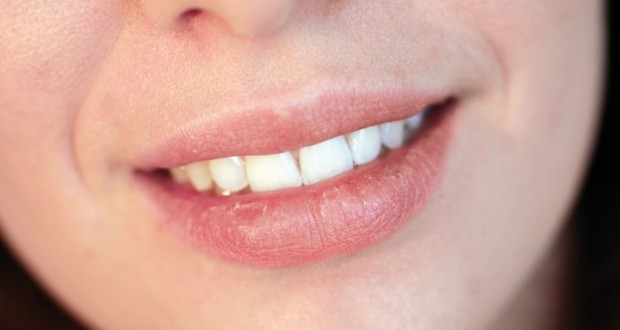It can be hard to take a problem like dry mouth seriously. Compared to other medical issues, feeling thirsty hardly seems worthy of attention. After all, how bad can having a dry mouth possibly be? Actually, the answer will probably surprise you. Dry mouth not can not only indicate the presence of more serious illnesses, but can also have a major impact on the health of your mouth. Though dry mouth can be a persistent and recurring opponent, adopting some basic guidelines can help mitigate this irritating condition.
The Reasons Why You’re Thirsty
Dry mouth, which also goes by the intimidating medical term xerostomia, can be caused by a number of different offenders. If your mouth regularly feels drier than the Mojave Desert in the summer, one of the following reasons might explain why:
Secondary Effects from Other Illnesses – We’ll start with the most alarming possibility – that your dry mouth signifies that something is seriously amiss within your body. It is not at all uncommon for dry mouth to be a precursor to a far more serious diagnosis, such as diabetes, Parkinson’s disease, Hodgkin’s disease, Sjogren’s syndrome and even HIV/AIDS. Conversely, a patient can begin experiencing dry mouth after being diagnosed with such conditions.
Medicinal Side Effects – Over the last several decades, medications to treat chronic and potentially fatal diseases have flooded the marketplace. While such drugs often improve the lives of those unfortunate enough to need them, they can also be responsible for numerous side effects. It would be an understatement to say that dry mouth is a frequent side effect of modern medicines. Dry mouth can occur from taking medications designed to treat the following conditions:
- Asthma
- Allergies
- Anxiety
- Diabetes
- Rheumatoid Arthritis
- Hypertension (high blood pressure)
- Parkinson’s disease
- Depression
- Acne
- Epilepsy
- Obesity
Damaged Nerves – Nerves inside the head and neck can be damaged by injury or surgical mistakes, resulting in the development of recurring dry mouth.
Poor Lifestyle Choices – Much has been written about the disastrous consequences of smoking and chewing tobacco. In addition to putting the body at risk of life-threatening illnesses, both of these habits can also cause dry mouth.
Dehydration – Sometimes, a dry mouth is simply caused by not getting enough water. Dehydration, however, isn’t always caused by poor drinking habits; fevers, burns, diarrhea, blood loss and burns all deprive the body of much-needed fluids, causing the mouth to become dry.
Symptoms and Aftereffects
The effects of dry mouth aren’t just limited to, well, a dry mouth. Patients can also experience burning and tingling feelings on the tongue, a seemingly unquenchable thirst, a hoarse voice and bad breath. The throat can feel parched, the tongue can turn dry and red and the lips may start to crack. Additionally, afflicted patients may struggle with everyday bodily functions usually taken for granted, such as chewing, swallowing, tasting and even talking. Some people with dry mouth even develop painful openings, called sores, inside and at the corners of the mouth.
As if these numerous symptoms weren’t enough of a burden, dry mouth frequently triggers the development of several conditions that harm the teeth. It is easy to envision dry mouth patients dreading upcoming dental appointments, since many of them are also stricken with gingivitis and tooth decay. Gingivitis occurs when the gums become inflamed due to unchecked bacterial growth. Tooth decay simply refers to the steady erosion of the tooth’s layers, a process also caused by elevated amounts of bacteria. Dry mouth can also lead to thrush, a particularly unpleasant malady that sees the mouth become infected with yeast.
Treatment and Prevention
If dry mouth symptoms are caused by certain medicines, a doctor may decide to alter a patient’s treatment plan. The daily dosage taken by the patient may be reduced, or the doctor could replace the current medication with another drug. A doctor might also recommend certain medicines and mouth washes specifically tailored to treat dry mouth.
Aside from consulting with your doctor, you can also employ a few helpful techniques on your own:
- This probably goes without saying, but drinking the oft-mentioned eight glasses of water each day can help prevent mouth dryness.
- Sugar-free candy might sound like a contradiction-in-terms, but rest assured that it actually does exist. People with dry mouth are often encouraged to suck on pieces of sugarless candy, as these bland treats can increase the amount of saliva inside the mouth.
- Dry mouth symptoms can be further aggravated by dry air. This problem can be addressed through the use of a humidifier, which pumps moisture into the surrounding environment.
- Minimize your consumption of products filled with alcohol, tobacco and caffeine. If possible, try and avoid these items completely.
- Try to focus on eating “soft” foods. This is a relatively easy task, since a wide range of foods fall into this category. Examples of soft foods include smooth peanut butter, chicken, fish, soft cooked vegetables and yogurt.
- Get plenty of vitamin A, vitamin B2 (also known as riboflavin) and vitamin B12. Each of these nutrients works to keep the mouth and tongue sufficiently moist. Vitamin A can be found in sweet potatoes, carrots, kale, spinach and lettuce. Good sources of riboflavin are almonds, whole grain breads, dried roasted soybeans and fish. Vitamin B12 can be purchased at the supermarket in the form of fish, lean cuts of beef and eggs.
- Switch to a mouthwash that doesn’t include alcohol as an ingredient.
 Natural Knowledge 24/7 Educate yourself with nutrition, health and fitness knowledge.
Natural Knowledge 24/7 Educate yourself with nutrition, health and fitness knowledge.






